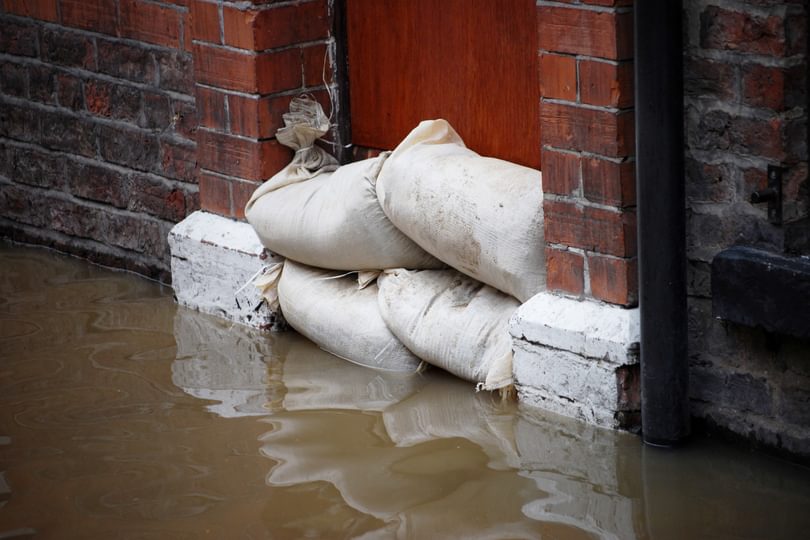
This is a joint event between the Oxford Martin School and the Oxford Climate Research Network
Managing the risk to coastal populations, infrastructure, and ecosystems resulting from sea level rise presents unique and daunting challenges. Sea level rise lags behind global warming due to inertia in the ocean-ice system; likewise, the response of sea level to stabilisation of the climate will lag behind the temperature response, making emissions reduction policy relatively ineffective through midcentury in reducing the rate of rise. Consequently, anticipatory adaptive responses are the key to lowering risk in the near term. On a century scale or longer, emissions mitigation can substantially reduce risk but century-scale projections of sea level rise are deeply uncertain due to a lack of knowledge and expert disagreement about the future contribution of the Antarctic ice sheet. On the latter timescale, effective responses would include a mixture of hard protection such as surge barriers and sea walls, flexible measures such as enhancement of natural defences and buildings that can withstand episodic flooding, and permanent, managed withdrawal of populations from many areas.
However, inertia in the policy system arising from perverse incentives, short-term perspectives, and behavioural biases, exacerbated by scientific uncertainty, virtually guarantee a response to this threat which will be far below the optimum. In many countries, including wealthy ones, a large gap between adaptation capacity and implementation is already apparent, putting lives and property continually under threat from temporary flooding and eventually, permanent inundation. Professor Michael Oppenheimer's, Albert G. Milbank Professor of Geosciences and International Affairs at Princeton University, talk will elucidate the increase in coastal hazard accompanying sea level rise to date, the rapid increase in the threat projected for the future, and means to overcome, at least partially, the dual problem of physical and policy inertia.
This talk will be followed by a drinks reception, all welcome
Join in on twitter #oxmartintalks
About the speaker
Michael Oppenheimer is the Albert G. Milbank Professor of Geosciences and International Affairs in the Woodrow Wilson School and the Department of Geosciences at Princeton University. He is the Director of the Program in Science, Technology, and Environmental Policy (STEP) at the Woodrow Wilson School and Faculty Associate of the Atmospheric and Oceanic Sciences Program, Princeton Environmental Institute and the Princeton Institute for International and Regional Studies.
Oppenheimer joined the Princeton faculty after more than two decades with the Environmental Defense Fund (EDF), a non-governmental, environmental organisation, where he served as Chief Scientist and Manager of the Climate and Air Program. He continues to serve as a science adviser to EDF.
Oppenheimer is a long-time participant in the Intergovernmental Panel on Climate Change (IPCC), which won the Nobel Peace Prize in 2007, serving recently as a coordinating lead author of both the IPCC’s special report on extreme climate events and disasters (called SREX) and the Fifth Assessment Report. Oppenheimer has been a member of several panels of the National Academy of Sciences, as well as, the Academy's Board on Energy and Environmental Systems. He is also a winner of the 2010 Heinz Award and a fellow of the American Association for the Advancement of Science.
His interests include science and policy of the atmosphere, particularly climate change and its impacts. Much of his research aims to understand the potential for “dangerous” outcomes of increasing levels of greenhouse gases by exploring the effects of global warming on the ice sheets and sea level, on the risk from coastal storms and on patterns of human migration. He also studies the process of scientific learning and scientific assessments and their role in problems of global change.
In the late 1980s, Oppenheimer and a handful of other scientists organised two workshops under the auspices of the United Nations that helped precipitate the negotiations that resulted in the United Nations Framework Convention on Climate Change (signed at the 1992 Earth Summit) and the Kyoto Protocol. During that period, he co-founded the Climate Action Network. His research and advocacy work on acid rain also contributed to the passage of the 1990 amendments to the Clean Air Act.
Prior to his position at the EDF, Oppenheimer served as an atomic and molecular astrophysicist at the Harvard-Smithsonian Center for Astrophysics and as a lecturer on astronomy at Harvard University. He received his Bachelor of Science degree in chemistry from the Massachusetts Institute of Technology and a doctoral degree in chemical physics from the University of Chicago. He pursued postdoctoral research at the Harvard-Smithsonian Center for Astrophysics.
Oppenheimer is the author of over 120 articles published in professional journals and is co-author (with Robert H. Boyle) of a 1990 book, “Dead Heat: The Race Against the Greenhouse Effect.”